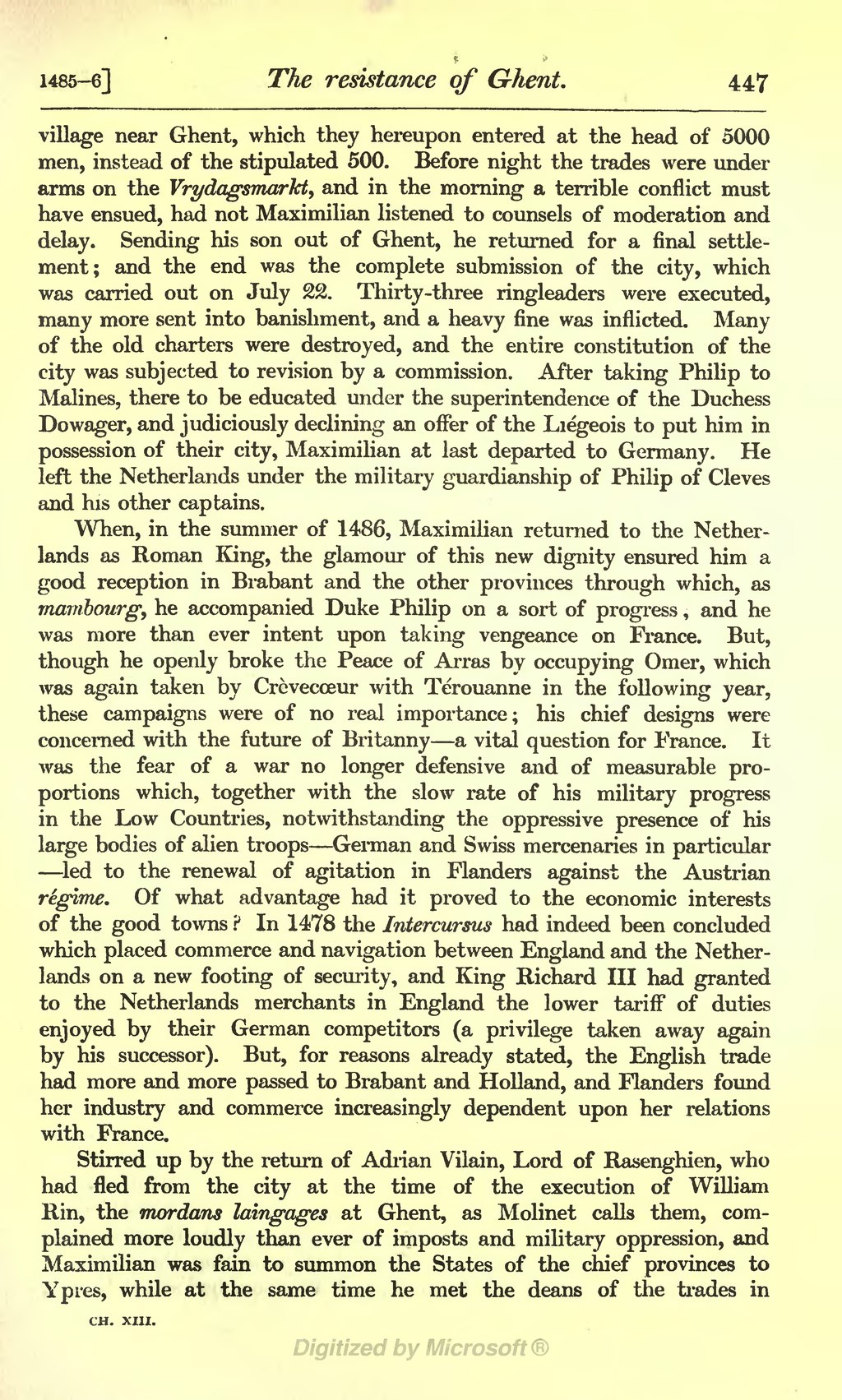village near Ghent, which they hereupon entered at the head of 5000 men, instead of the stipulated 500. Before night the trades were under arms on the Vrydagsmarkt, and in the morning a terrible conflict must have ensued, had not Maximilian listened to counsels of moderation and delay. Sending his son out of Ghent, he returned for a final settlement; and the end was the complete submission of the city, which was carried out on July 22. Thirty-three ringleaders were executed, many more sent into banishment, and a heavy fine was inflicted. Many of the old charters were destroyed, and the entire constitution of the city was subjected to revision by a commission. After taking Philip to Malines, there to be educated under the superintendence of the Duchess Dowager, and judiciously declining an offer of the Liegeois to put him in possession of their city, Maximilian at last departed to Germany. He left the Netherlands under the military guardianship of Philip of Cleves and his other captains.
When, in the summer of 1486, Maximilian returned to the Netherlands as Roman King, the glamour of this new dignity ensured him a good reception in Brabant and the other provinces through which, as mambourg, he accompanied Duke Philip on a sort of progress; and he was more than ever intent upon taking vengeance on France. But, though he openly broke the Peace of Arras by occupying Omer, which was again taken by Crevecceur with Terouanne in the following year, these campaigns were of no real importance; his chief designs were concerned with the future of Britanny-a vital question for France. It was the fear of a war no longer defensive and of measurable proportions which, together with the slow rate of his military progress in the Low Countries, notwithstanding the oppressive presence of his large bodies of alien troops-German and Swiss mercenaries in particular -led to the renewal of agitation in Flanders against the Austrian regime. Of what advantage had it proved to the economic interests of the good towns? In 1478 the inte/rcursus had indeed been concluded which placed commerce and navigation between England and the Netherlands on a new footing of security, and King Richard III had granted to the Netherlands merchants in England the lower tariff of duties enjoyed by their German competitors (a privilege taken away again by his successor). But, for reasons already stated, the English trade had more and more passed to Brabant and Holland, and Flanders found her industry and commerce increasingly dependent upon her relations with France.
Stirred up by the return of Adrian Vilain, Lord of Rasenghien, who had fled from the city at the time of the execution of William Rin, the mordans laingages at Ghent, as Molinet calls them, complained more loudly than ever of imposts and military oppression, and Maximilian was fain to summon the States of the chief provinces to Ypres, while at the same time he met the deans of the trades in
